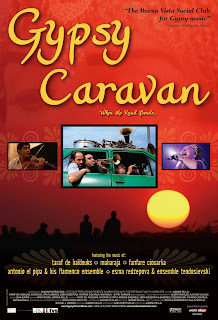Stolen Life
 Stolen Life takes some surprising turns during the voyage of its lead character. As a study of broken families, youth culture in China, and shady dealings in its underworld, it paints a vivid picture of the difficulties faced by its residents. It also has a disturbing central plot point that carries even greater weight with the revelation of its origin in a true story.
Stolen Life takes some surprising turns during the voyage of its lead character. As a study of broken families, youth culture in China, and shady dealings in its underworld, it paints a vivid picture of the difficulties faced by its residents. It also has a disturbing central plot point that carries even greater weight with the revelation of its origin in a true story.As a teenage girl growing up in Beijing, Yan-ni is a meek, reserved student who has never had any real independence. She battles feelings of rejection from her own parents who gave her away when she was a baby, and continually isolates herself from her grandmother and aunt who raised her. She seems destined for an unremarkable life until she surprises her family by gaining acceptance to a university, setting off a chain of events that permanently alters her future.
During her first day of school, she encounters a charming truck driver named Mu-yu who quickly professes his love for her. Yan-ni is easily impressionable and very much alone, so she eventually falls for his charms and begins an all-consuming relationship that finds her shifting her focus away from school. After paying a surprise visit to his home one day, she learns that Mu-yu has a baby with another woman but she still finds herself unable to leave him. She soon becomes pregnant with his child, forcing her to abandon school and move into a dingy underground apartment with him, where they spiral into an economic and emotional tailspin after he loses his job.
Not surprisingly, Mu-yu is not quite as devoted as Yan-ni might hope, but the true nature of his plan doesn’t become clear until after the birth of their child. As it turns out, Yan-ni has fallen into Mu-yu’s ongoing scam of selling his own infants on the black market, and she has become just another number in his continual cycle of abuse and deceit. She discovers his evil plan too late to save her own child, but pulls herself together to embark on a quest for personal redemption and possibly revenge.
The strongest aspect of the film is the depth of its characters, especially the initially hidden, steely resolve exhibited by Zhou Xun in the role of Yan-ni. Rather than just provide broad strokes of the two lead characters or gloss over their motivations, director Li Shaohong examines the forces that shaped them, such as their abandonment by their own parents and the painful aftermath of their relationship. The film has plenty to say about the state of China’s rising middle class and the lengths people will take to reach it, but its primary focus is Yan-ni’s quest to deal with its sometimes disastrous repercussions. Yan-ni’s pivotal choice is to try to put her life back together or succumb to the easy temptation for revenge, and her decision plays out with substance and poignancy thanks to the solid character groundwork put in place.
Stolen Life is now available on DVD, check your local retailer for additional information.
Labels: Li Shaohong, Stolen Life, Zhou Yun


















